Uncategorized
-
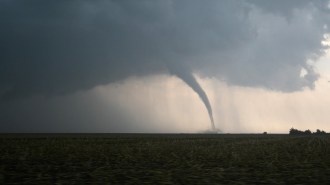 Climate
ClimateMore tornadoes are popping up east of the Mississippi
Tornadoes are becoming slightly less frequent in Tornado Alley, while more are touching down farther east in the United States, a study suggests.
-
 Archaeology
ArchaeologyThe water system that helped Angkor rise may have also brought its fall
A complex water system magnified flooding’s disruption of the medieval Cambodian city of Angkor.
By Bruce Bower -
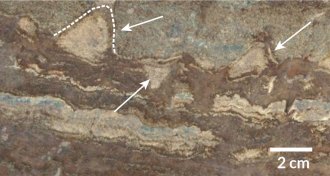 Earth
EarthThese ancient mounds may not be the earliest fossils on Earth after all
A new analysis suggests that tectonics, not microbes, formed cone-shaped structures in 3.7-billion-year-old rock.
-
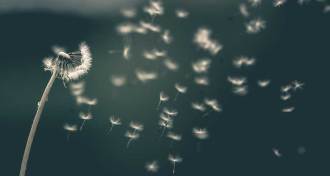 Life
LifeDandelion seeds create a bizarre whirlpool in the air to fly
Researchers have deciphered the physics underlying dandelion flight.
-
 Particle Physics
Particle PhysicsWhat the electron’s near-perfect roundness means for new physics
The electron remains stubbornly round, meaning we may need to build beyond the Large Hadron Collider to find physics outside of the standard model.
-
 Astronomy
AstronomyReaders wonder about a hydrogen wall, pig lung transplants and more
Readers had questions about a glow at the edge of the solar system, pig lung transplants, the use of the word promiscuous and more.
-
 Science & Society
Science & SocietyWaking up early to cover science’s biggest honor
Editor in Chief Nancy Shute discusses how the Science News editors and reporters cover the Nobel Prizes each year.
By Nancy Shute -
 Health & Medicine
Health & MedicineA mysterious polio-like disease has sickened as many as 127 people in the U.S.
Medical experts are trying to trace the cause of 62 confirmed cases of acute flaccid myelitis this year.
-
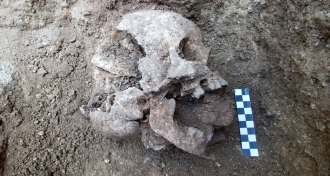 Archaeology
ArchaeologyAn ancient child’s ‘vampire burial’ included steps to prevent resurrection
A 10-year-old skeleton in a Roman cemetery had a stone placed in its mouth to prevent the youngster from rising from the dead, researchers say.
By Bruce Bower -
 Neuroscience
NeuroscienceTo unravel autism’s mysteries, one neuroscientist looks at the developing brain
Autism researcher Kevin Pelphrey focuses on understanding signs of the disorder in the developing brain, which could shed light on the condition.
-
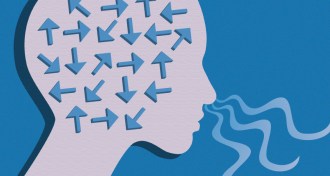 Neuroscience
NeurosciencePeople who have a good sense of smell are also good navigators
A sense of smell and a sense of direction are tangled in the brain, a new study finds.
-
 Life
LifeExplore the history of blood from vampires to the ‘Menstrual Man’
Rose George’s book ‘Nine Pints’ offers readers an engaging and insightful cultural and scientific history of blood.